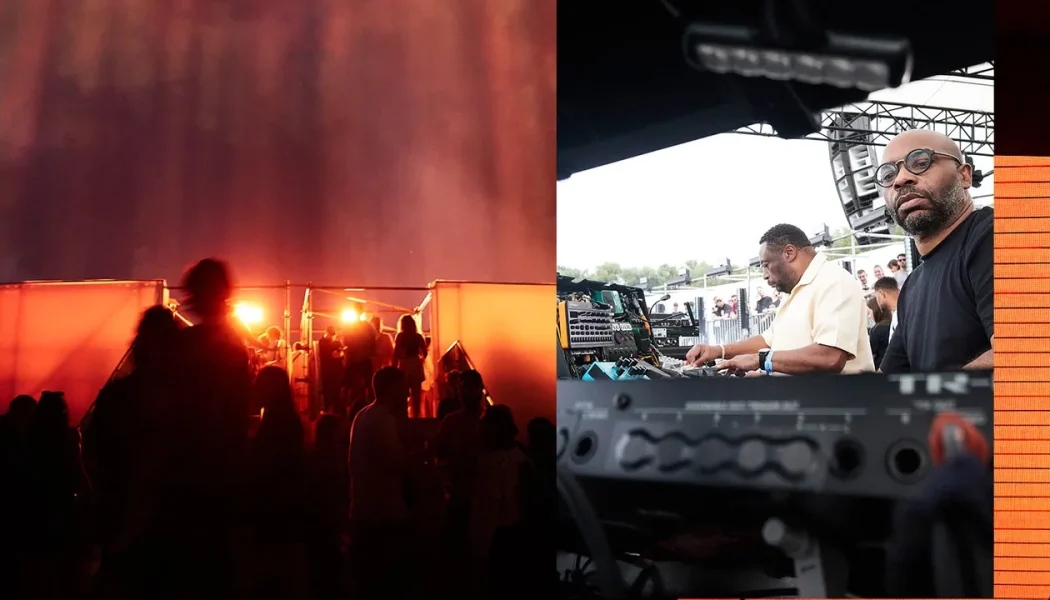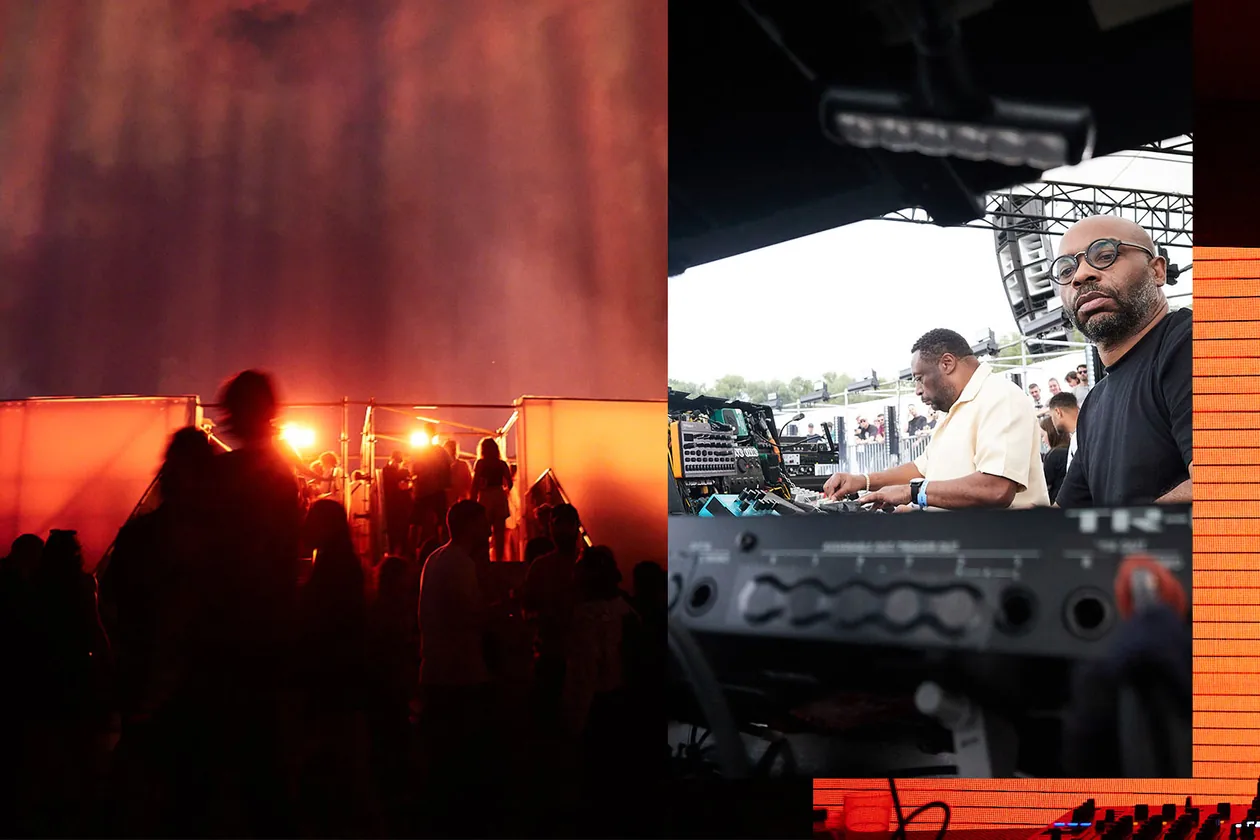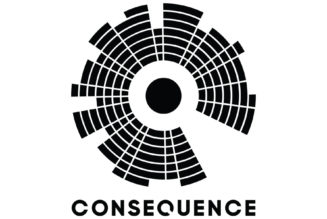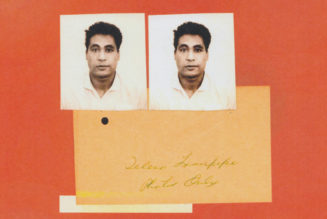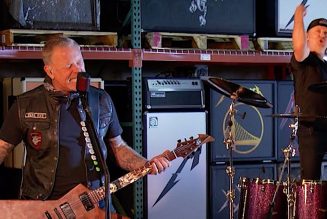London-based photographer Ollie Trenchard joins Hypebeast as a guest writer, sharing a photo-essay on Dekmantel 2024.
As Dekmantel marked its 10th edition this summer, techno music – the backbone of the program – ushered in its unofficial 40th anniversary, a milestone marked by Juan Atkins’ 1985 track “No UFO’s” (released under his Model 500 moniker by Detroit-based label Metroplex and considered by music historians to be the first techno track). Founded in 2012, Dekmantel has quickly risen to become a global leader in electronic music from its origins as a local music festival in Amsterdam, with its main event typically taking place over an early August weekend in the lush forest-like settings of Amsterdamse Bos just south of the city.
This year, the festivities extended over 10 days to celebrate the festival’s 10th anniversary (accounting for two years lost to the pandemic) with events held at clubs and industrial spaces across Amsterdam. By spreading out the activities, festival-goers were encouraged to explore more of the city through a variety of live performances, talks and workshops.
Over the years, Dekmantel has collaborated with a variety of artists, labels, and cultural institutions, including a notable partnership with Boiler Room that helped Dekmantel to reach a global audience through DJ sets streamed live from its events. While Dekmantel’s eclectic lineups honor and reflect the history of techno, they also champion the new sounds that continuously evolve from within the scene and this year the brand released an EP series that featured tracks from artists closely associated with it. Albert Van Abbe, creative director of the festival and an electronic musician himself, told Hypebeast that “for Dekmantel, it’s a priority to lean into cultural value, which means we are not always thinking about commercial success first.” Speaking on his more rebellious history that included squatting and “doing illegal raves and traveling through Europe with a sound system,” he added, “this DIY thing is deeply ingrained in me.”
“I think festivals are very primal. It’s a very old idea, we’ve been doing this since we were people gathering.” – Albert Van Abbe
Techno’s origins can be traced back to Detroit in the early 1980s, a city struggling with unemployment and racial divides. Black youths in the city were influenced by the house sound emerging from nearby Chicago, as well as industrial and spacey soundscapes from Germany and Italy. By repurposing discarded drum machines and sequencers, early pioneers like the Belleville Three (Juan Atkins, Derrick May & Kevin Saunderson) were driven by a similar DIY attitude and a willingness to experiment with technology, creating a sound that has endured through time and resonated with producers and DJs worldwide. The rave scenes in the UK and across Europe in the early 1990s contributed significantly to techno’s growth, with imported new sounds from the US adopted locally and given a new flavor. Originating in the Black communities of Detroit, techno is now a global phenomenon, and – with each new branch that emerges – an endlessly evolving and important genre within electronic music.
The Netherlands was an early adopter of the techno sound and the Dutch developed their own harder and faster style that has recently come back in vogue on dance floors. In recognition of this rich history, Dekmantel’s 10th anniversary lineup championed Dutch talent and on the opening night of the main weekend each stage was closed by a local DJ.
One of these local DJs, Spekki Webu, played the closing set at the Radar stage on Friday. “Dekmantel just keeps on getting bigger and better. Top tier from the Netherlands,” he tells Hypebeast. “Black techno means to me something almost sacred; these guys really set up a new movement.” Reflecting on his influences, he added, “I grew up in Delft, near Rotterdam. There were two things going on: the Gabba scene and Jungle.” His distinctive sound, infused with cinematic themes, resonates with the Afro-Futuristic tones pioneered by the Detroit originators.
Carista, a DJ from Utrecht and founder of the label United Identities, performed twice at the event this year and also commented on the festival’s focus on local talent. “It was definitely a statement programming-wise and an honor, for sure,” she tells us. “They have a vision and an eye for talent, and it’s really nice that they see that in me.” Speaking about her connection to Detroit and the original artists who inspire her, she said, “Theo Parrish – he’s the legend when it comes to playing music, running his label, and producing. Also, someone like Ron Trent, a legend who keeps the essence of house and techno music alive.”
Deep house stalwart, Ron Trent, who has dabbled in the techno sound with his seminal release “Altered States”, was in a positive mood despite his well-publicized booking issues prior to the event. “Today I’m bringing the force of the RT sound system,” he said. As an elder of the scene, he sees it as his duty to encourage motivated youngsters. “I deal with a lot of young people back in Chicago. This is how we pass on the torch and keep this movement of sound moving. We give knowledge and energy back to the next generation.”
The UK has also been at the forefront of the techno scene from early on and British DJ, Actress, played his set at Dekmantel on Thursday night at The Shelter. “Dekmantel always has a great lineup, good vibes,” he says assuredly. And, when asked about his place in techno, he gave us an equally measured response: “The way I look at it is I’m just another [DJ] in the long line of Black musical heritage. There’s a certain sort of discipline I put into my music, which is related to the lineage of Black techno.”
“Black techno means to me something almost sacred.” – Spekki Webu
Dekmantel’s international roster also included DJ Maaco – playing as Detroit in Effect – whose fondness for his host city was obvious. “The Dutch kinda remind me of home,” he told Hypebeast, “you got the real heads here.” Maaco’s live performance at the UFO2 stage had the festival buzzing on Saturday afternoon, with Dekmantel’s programming honoring Detroit’s role in techno. Another American artist on the lineup was Akua. The DJ – who is now based in Berlin – told us that she is “one of a few Black American females playing purely techno who has an international touring schedule.” Her Dekmantel Boiler Room set from 2022 helped establish her place in the scene, and reflecting on her formative years she stated that “before I loved techno, I was very into bass music and footwork, UK labels like Hyperdub. My knowledge of techno was solidified after a friend told me to read ‘Energy Flash’.” Discovering the genre’s Black origins was an important moment of clarity for Akua, as she explains “finding out it was a Black art form really struck me. Right now, there is a beautiful renaissance in the States with younger artists who are really into old-school techno.”
Dekmantel’s clever programming ensures that artists with close ties to the roots of techno are given the platform to perform alongside those who weave different textures into their sound. Jeff Mills, also known as “The Wizard”, closed The Loop stage in emphatic style on Sunday. As one of the original innovators from Detroit and a founding member of Underground Resistance, a collective started in the late 1980s, his influence remains strong today.
Navigating the festival site, which is typically Dutch in its efficiency of movement and space, you’re constantly drawn into covered and open-air spaces enveloped in beautiful swaths of sound from consistently high-quality sound systems. The crowd is the ultimate beneficiary. “I think festivals are very primal,” Van Abbe says, “it’s a very old idea, we’ve been doing this since we were people gathering. I think coming from that standpoint it’s an esoteric thing, you know? How to design bringing people together and bringing a vibe.”
Just like techno music, Dekmantel will continue to evolve whilst respecting its past. Globally, artists and musicians are pushing the boundaries of what’s possible in music, using technology as a tool for empowerment rather than control. This also serves as a reminder of the critical role music plays in the fight for social justice, cultural transformation and, ultimately, rebellion – just like the Detroit originators. We’ll be watching with excitement to see what Van Abbe and his team come up with for Dekmantel’s 11th offering in 2025 – stay tuned for more on that.
